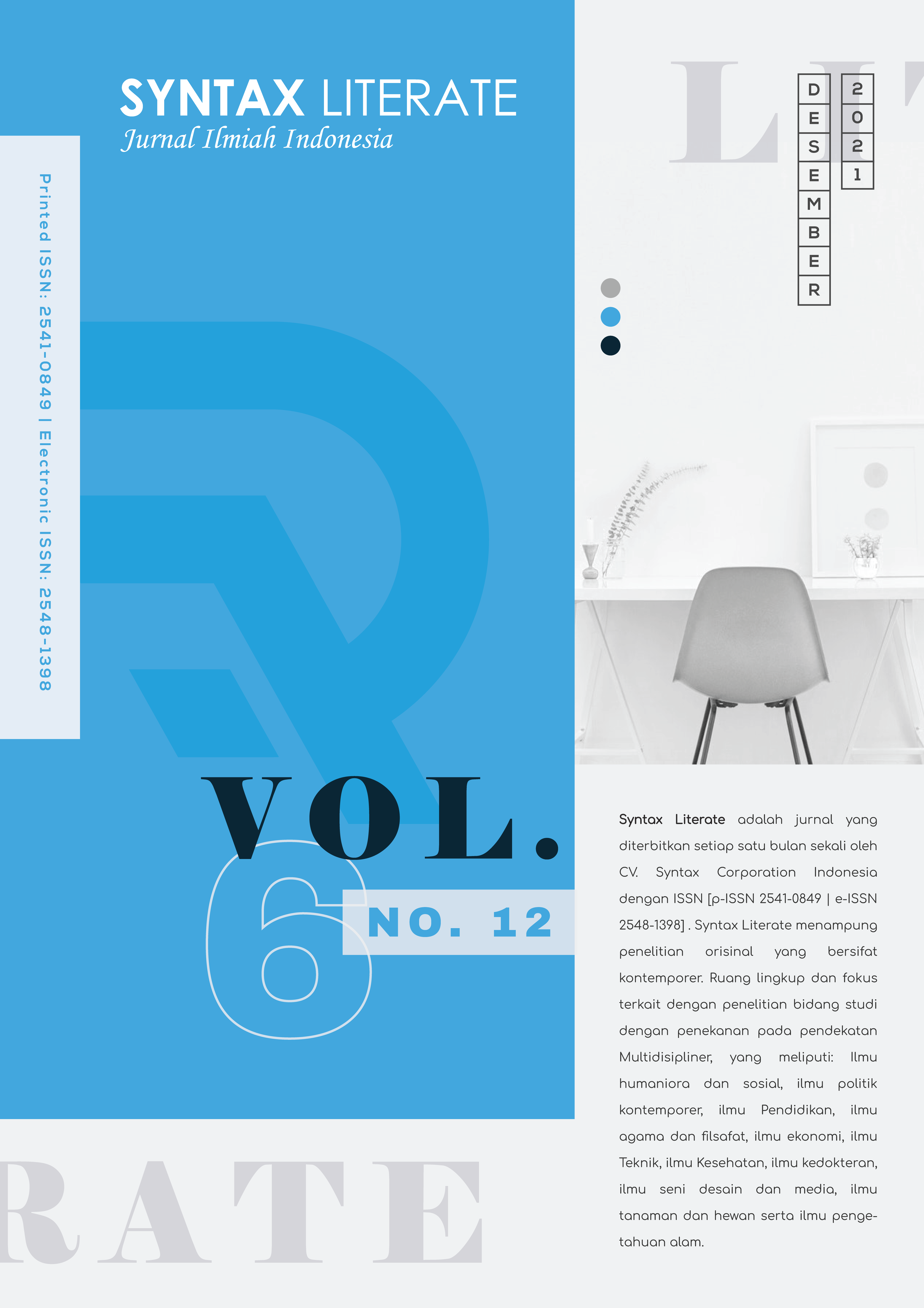UIN Sultan Maulana Malik Ibrahim's Strategy in Instilling Islamic Insight Students
Abstract
The Ministry of Religion is currently carrying out various strategies to prevent radical religious education and taking anticipatory steps to mainstream moderate religious understanding to anticipate radicalism movements.State Intelligence Agency (BIN) reported in 2017 about 37% of university students from a number of universities in Indonesia had been exposed to radicalism. Based on the data, it was also found that around 24% of university students and 23.3% of senior high school students were in agreement about the establishment of Islamic state in Indonesia. This finding has drawn the concern of PTKIN since it had become the basis for the spread of radicalism among the current millennial generation. PTKIN, as an educational institution and an institution under the Ministry of Religion's auspices, must help convey the value of Islamic insight to its students by teaching them. In the industrial era 4.0, UIN Sultan Maulana Malik Ibrahim Malang places a high priority on developing a planned and well-measured approach for infusing Islamic awareness in pupils. The existence of Ma'had al-Jami'ah UIN Maliki is one of the initiatives made, such as publishing an Islamic journal and training a cadre of ulama in public speaking for millennials. Workshops on Religious Moderation and conferences on the notion of Santri Dedication in Indonesian Deradicalization Efforts.
Downloads
References
Arendt, J. S. (1990). Using quantitative risk assessment in the chemical process industry. Reliability Engineering and System Safety, 29(1), 133–149. https://doi.org/10.1016/0951-8320(90)90075-X
Biygautane, M., Neesham, C., & Al-Yahya, K. O. (2019). Institutional entrepreneurship and infrastructure public-private partnership (PPP): Unpacking the role of social actors in implementing PPP projects. International Journal of Project Management, 37(1), 192–219.
Haddara, M., & Elragal, A. (2015). The Readiness of ERP Systems for the Factory of the Future. Procedia Computer Science, 64, 721–728.
Hadziq, A. (2018). Pendidikan Anti Kekerasan Berwawasan Lingkungan. At-Tarbawi: Jurnal Kajian Kependidikan Islam, 3(1), 55–71.
Hadziq, A. (2019). Nationalism of the Islamic Student Organization in Counteracting Radicalism among Teenagers at the State Islamic Institute (IAIN) Surakarta. Journal of Islamic Religious Education Al-Thariqah, 4(1).
Maryolo, A. (2018). Filantropi Berbasis Faith Based Organization di Indonesia (Studi Kasus Program PKPU). Palita: Journal of Social Religion Research, 2(1), 13–24.
Ribeiro, A., Amaral, A., & Barros, T. (2021). Project Manager Competencies in the context of the Industry 4.0. Procedia Computer Science, 181, 803–810.
Romanova, O. A. (2018). Industrial policy priorities of Russia in the context of challenges of the fourth industrial revolution. Part 1. Ekonomika Regiona= Economy of Regions, 2, 420.
Røpke, I., & Christensen, T. H. (2012). Energy impacts of ICT–Insights from an everyday life perspective. Telematics and Informatics, 29(4), 348–361.
Rosidi, I. (2022). The Hybrid Identity of Urban Muslim Youth: The Case of Teras Dakwah Yogyakarta. Esensia Jurnal Ilmu-Ilmu Ushuluddin, 23(1), 103–123.
Saputra, E. (2016). Dampak Sosial Media Terhadap Sikap Keberagamaan Remaja Dan Solusinya Melalui Pendidikan Agama Islam. Sosio E-Kons, 8(2).
Taufik, M. (2020). Strategic Role of Islamic Religious Education in Strengthening Character Education in the Era of Industrial Revolution 4.0. Jurnal Ilmiah Islam Futura, 20(1), 86–104.
Thaib, E. J. (2019). Problems of Da’wah in Social Media in Gorontalo City Communities. Ilmu Dakwah: Academic Journal for Homiletic Studies, 13(1), 37–53.
Waskito, T., & Fauzan, F. (2021). Identity Politics of Hijrah Community of" Yuk Ngaji". KALAM, 15(2).
Wheelen, T. L., & Hunger, J. D. (2012). Strategic Management and Business Policy 13th ed. Pearson Education Limited.
Copyright (c) 2021 Nadia Nurfitria

This work is licensed under a Creative Commons Attribution-ShareAlike 4.0 International License.











